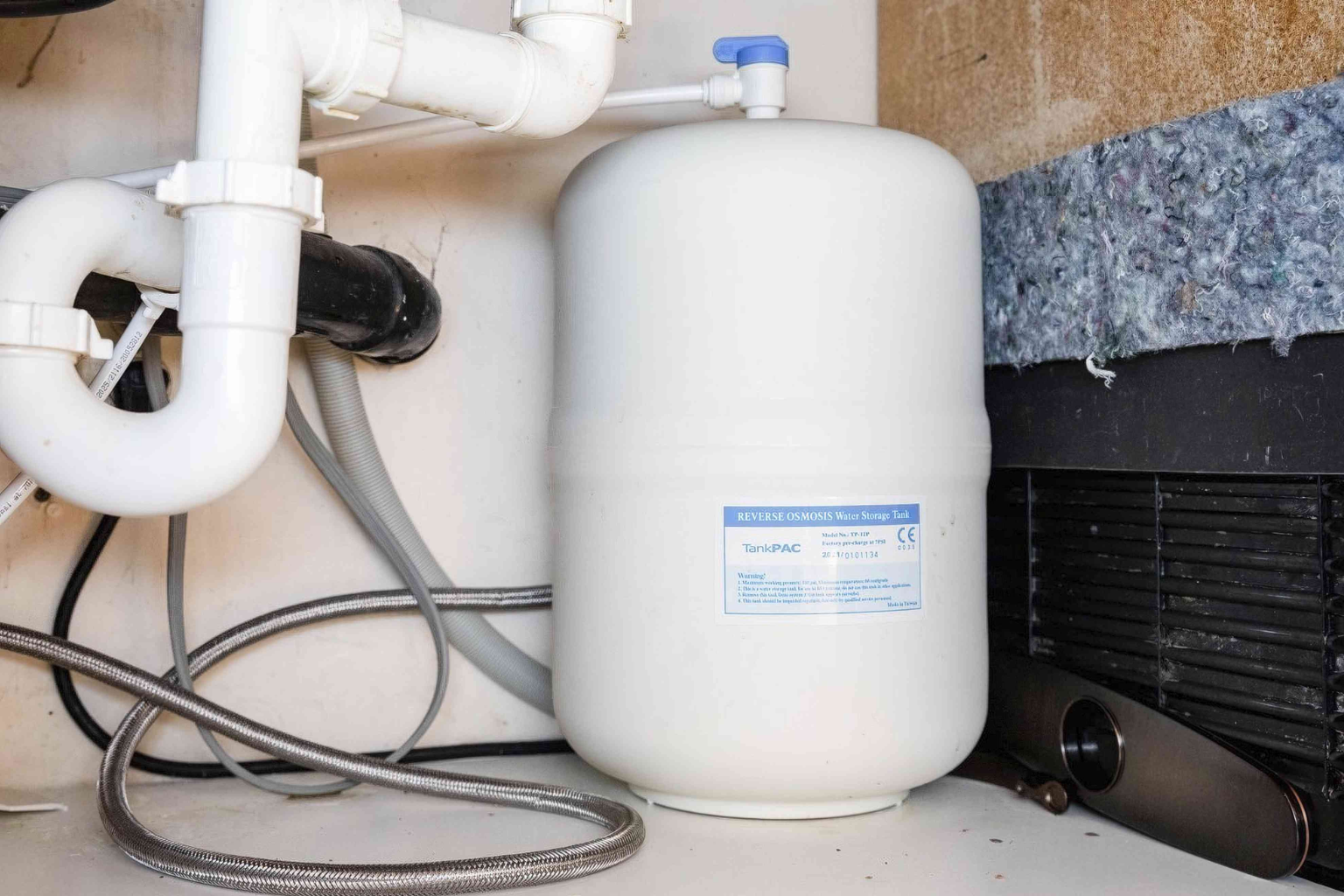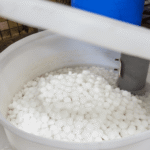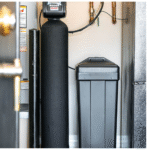If you’ve ever stepped out of the shower and felt like there’s still a weird film on your skin… you’re not imagining things. That slick-but-dry feeling? It’s not your soap—it’s your water. Or more specifically, it’s what’s in your water. Welcome to life with hard water, Hobbs-style.
Hard water isn’t harmful in the medical sense, but it’s a silent saboteur. It clogs your pipes, shortens the lifespan of your appliances, fades your laundry, and leaves your skin and hair feeling dull and dry. Not to mention the white crusty stuff on your faucets, your shower door, your kettle. That’s calcium and magnesium buildup—classic hard water signature.
But here’s the good news: there’s a fix. A real, long-term one. And it’s not as complicated as you might think.
Water Softeners: What Are They, and Why Should You Care?
Let’s break this down.
Water softeners are home systems that remove the excess calcium and magnesium from your water supply—the two culprits behind “hard” water. When your water gets softened, those minerals are replaced (usually with sodium or potassium ions), leaving you with water that actually lathers, rinses clean, and doesn’t gunk up your pipes.
It’s kind of magical when you first make the switch. Suddenly, your skin doesn’t itch after a shower. Your dishes come out of the dishwasher clear. Your towels feel fluffier. Even your coffee tastes better.
The benefits aren’t just about comfort either—they’re practical. Hard water is tough on everything it touches. It builds up inside water heaters, lowers efficiency, and can cause early breakdowns. If you’ve ever called a plumber to fix a backed-up pipe or malfunctioning appliance, there’s a chance hard water was playing the villain behind the scenes.
Why Hobbs, NM Is a Prime Candidate for Water Softening
Now, let’s talk local.
Hobbs sits in a region with notoriously hard water. You can taste it. You can see it. And if you’ve been here a while, you’ve probably learned to live with it. But here’s the thing—you don’t have to.
Installing a water softener in Hobbs isn’t a luxury—it’s damage control. It’s like putting sunscreen on before stepping into the New Mexico sun. You could go without it, but why suffer if there’s a solution?
And the solution doesn’t have to break the bank or take over your garage. Today’s water softner systems come in a range of sizes and prices, from compact single-tank units for smaller homes to dual-tank powerhouses for big families and heavy usage.
Choosing the Right System (Without Getting a Headache)
Not all water softeners are created equal. You’ve got salt-based systems, salt-free systems, magnetic conditioners, and reverse osmosis setups. It can feel like a maze.
But you don’t have to figure it out on your own. A reliable Hobbs plumber—one who knows the local water conditions and has hands-on experience with installs and repairs—can guide you through the process.
They’ll help you answer the big questions:
- How hard is your water, really? (You’d be surprised.)
- How much water does your household use daily?
- Are you okay with refilling salt every few weeks?
- Would a salt-free option work better for your lifestyle?
A good plumber won’t try to upsell you on bells and whistles you don’t need. They’ll focus on fit, performance, and long-term reliability. And they’ll install it the right way—no leaks, no pressure issues, no weird surprises.
Maintenance Isn’t Scary (Promise)
A lot of folks hesitate to install a softener because they’re worried about maintenance. But here’s the thing: it’s really not that hard. Most salt-based systems just need a refill every 6 to 8 weeks. Some newer models even alert you when it’s time to top off.
An annual check-in by your local plumber will keep everything running smooth. They’ll check valves, clean the resin tank if needed, and make sure your system is doing what it’s supposed to—without guzzling salt or wasting water.
Salt-free systems are even easier. Many of them don’t require electricity, drainage, or regular topping off. They don’t remove minerals the way salt systems do, but they condition the water to prevent scale from forming. For homes where salt use is a concern, they can be a great alternative.
The Little Things That Make a Big Difference
Once your water’s softened, you’ll notice all sorts of subtle perks. Your shampoo lasts longer. Your coffee pot doesn’t need constant descaling. Your clothes look brighter. Your utility bills might even drop because your appliances aren’t fighting against buildup to function properly.
It’s one of those home upgrades that doesn’t show off, but quietly improves life across the board.
Final Thoughts: Hard Water Doesn’t Have to Win
Living in Hobbs means accepting a lot of things—sunshine, wide-open skies, the occasional tumbleweed. But dealing with hard water isn’t one of them.
Water softeners aren’t just about comfort; they’re about protecting your home and your health. From extending the life of your appliances to making every shower feel a little more spa-like, it’s a small investment with big returns.
So if you’re sick of scrubbing mineral stains off your faucets or replacing water heaters more often than you’d like, maybe it’s time to talk to a hobbs plumber who knows the ins and outs of water softner systems. You’ll be glad you did—especially the next time you step into the shower and realize, finally, it’s not your soap. It was the water all along.



